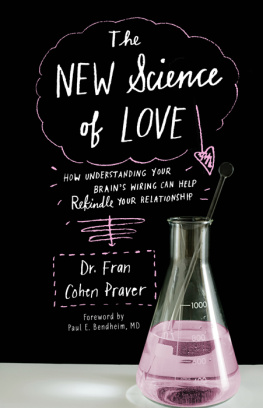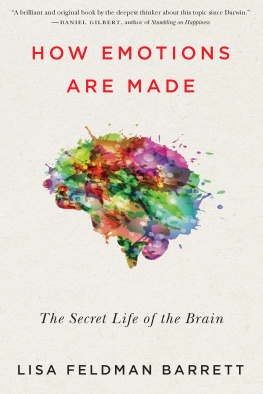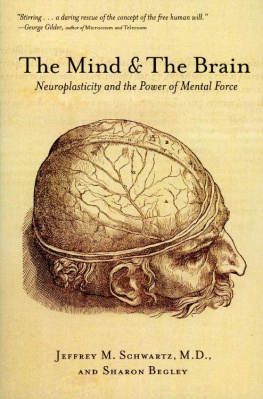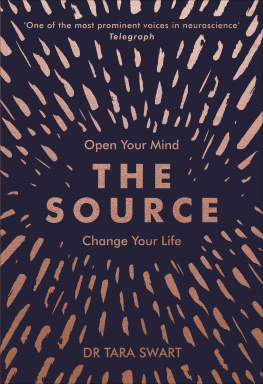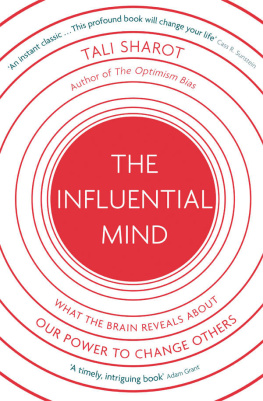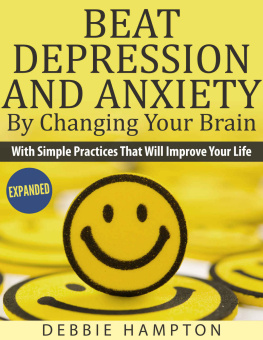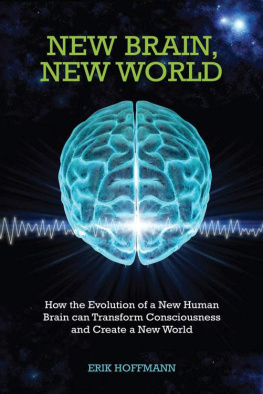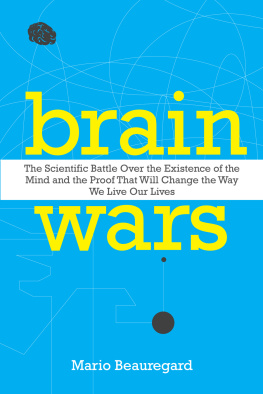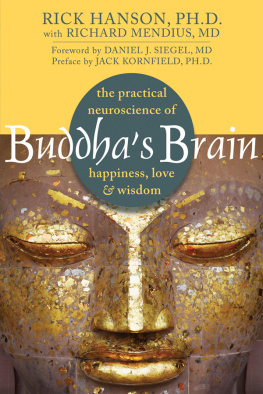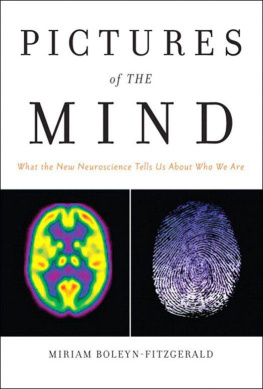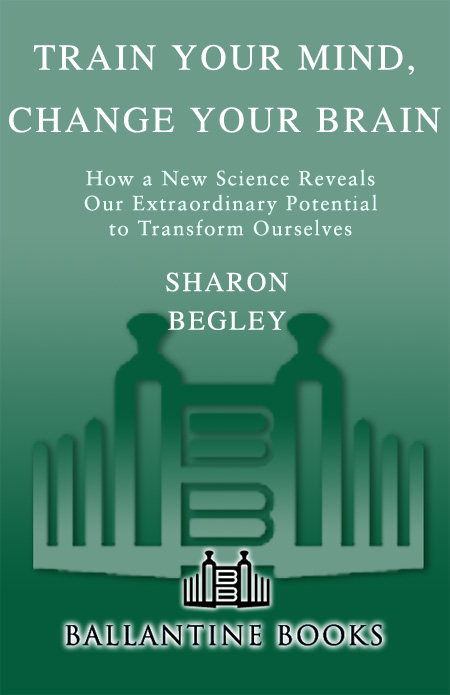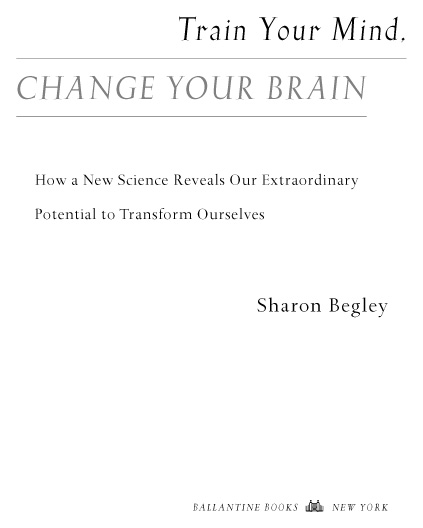Praise for
Train Your Mind, CHANGE YOUR BRAIN
A thrilling account of recent breakthroughs in neurology that have profound implications for Buddhist practitioners and anyone interested in human potential and how the mind works.
Shambhala Sun
Reading this book is like opening doors in the mind. Sharon Begley brings the reader right to the intersection of scientific and meditative understanding, a place of exciting potential for personal and global transformation. And she does it so skillfully as to seem effortless.
S HARON S ALZBERG , author of
Faith: Trusting Your Own Deepest Experience
Neuroplasticity has enormous implications not only for our physic cal health but for our mental health.
Slate
It is very seldom that a science in its infancy is so skillfully unpacked that it reads like a detective novel. The fact that this science includes the collaborative efforts of neuroscientists, psychologists, contemplatives, and philosophers, and the full engagement of the genius of the Dalai Lama is not only fascinating but uplifting and inspiring. This book lets you know that how you pay attention to your experience can change your entire way of being.
J ON K ABAT -Z INN , author of Coming to Our Senses
Does a good job of detailing the history behind the discovery [that the human brain is not fixed at adulthood] and how it is changing our approach to learning, neurological diseases, and emotional understanding.
BusinessWeek
This is a truly illuminating and eminently readable book on the revolutionary new insights in mind sciences. I recommend it highly to anyone interested in understanding human potential.
J ACK K ORNFIELD , author of A Path with Heart
A clearly written account of recent discoveries about brain plasticity.
New Scientist
I have meditated for forty years and have long felt that the potential of mind training to improve our emotional, physical, and spiritual well-being has barely been tapped. Thanks to Sharon Begleys fascinating book, though, that is about to change. As human beings, we really do have inner powers that can make a world of difference, particularly if our goal is not merely to advance our own agendas but to cultivate compassion for the benefit of all living beings.
J OHN R OBBINS , author of Healthy at 100 and Diet for a New America
To Ned, Sarah, and Daniel,
for seeing me through

FOREWORD
The Dalai Lama
It is now nearly twenty years since the first Mind and Life Conference took place in Dharamsala. Some of those who fostered and encouraged those initial dialogues between Buddhism and modern science, such as the late Robert Livingston and Francisco Varela, are no longer with us. Nevertheless, Im sure they would share the pride and enthusiasm the eminent scientists, contemplatives, and other contributors who have subsequently been involved, have expressed about what our conversations have achieved so far.
Although modern science and the Buddhist contemplative tradition arose out of quite different historical, cultural, and intellectual circumstances, I have found that they have a great deal in common. By some accounts, both traditions are motivated by an urge to relieve the hardships of life. Both are suspicious of notions of absolutes, whether these imply the existence of a transcendent creator or an unchanging entity such as a soul, preferring to account for the emergence of life in the world in terms of the natural laws of cause and effect. Both traditions take an empirical approach to knowledge. It is a fundamental Buddhist principle that the human mind has tremendous potential for transformation. Science, on the other hand, has, until recently, held to the convention not only that the brain is the seat and source of the mind, but also that the brain and its structures are formed during infancy and change little thereafter.
Buddhist practitioners familiar with the workings of the mind have long been aware that it can be transformed through training. What is exciting and new is that scientists have now shown that such mental training can also change the brain. Related to this is evidence that the brain adapts or expands in response to repeated patterns of activity, so that in a real sense the brain we develop reflects the life we lead. This has far-reaching implications for the effects of habitual behavior in our lives, especially the positive potential of discipline and spiritual practice. Evidence that powerful sections of the brain, such as the visual cortex, can adapt their function in response to circumstances reveals an astonishing malleability unforeseen by earlier, more mechanistic interpretations of the brains workings.
Findings that show how a mothers expressions of love and physical contact with her child can affect the triggering of different genetic responses tell us a great deal about the importance we need to give to bringing up our children if we wish to create a healthy society. On the other hand, it is also tremendously encouraging to know that some therapeutic techniques may successfully be employed to help those people, who, due to childhood neglect, find it difficult to generate warm, compassionate feelings toward others. Reports of cases where normal function has been restored through therapy indicate exciting and innovative discoveries. Finally, there has been a positive answer to the question I have been asking for many years; investigators have shown that how people think really can change their brains.
In addition to my interest in science, readers may also know that Im a keen gardener. But gardening is often a hit-and-miss activity. You can put a lot of time into preparing the soil, carefully sowing the seeds, watching over them, and watering the seedlings. And yet, other conditions beyond your controlparticularly in places such as Dharamsala, where I live, with its occasionally excessive heat, humidity, and rainfallcan prevent these efforts from ever coming to fruition. Therefore, as other gardeners will attest, there is a special joy to be had from seeing the plants you have nurtured emerge and blossom. I feel a somewhat similar emotion toward the findings related to neuroplasticity (revealed and discussed at our conference and recounted in this book): that we have reached a watershed, an intersection where Buddhism and modern science become mutually enriching, with huge practical potential for human well-being.
A great Tibetan teacher once remarked that one of the minds most marvelous qualities is that it can be transformed. The research presented here confirms that such deliberate mental training can bring about observable changes in the human brain. The repercussions of this will not be confined merely to our knowledge of the mind: They have the potential to be of practical importance in our understanding of education, mental health, and the significance of ethics in our lives.
The Mind and Life Institute has grown into a substantial network of scientists, scholars, and interested individuals focused on the creation of a contemplative, compassionate, and rigorous experimental and experiential science of the mind. This we hope will be able to guide and inform medicine, neuroscience, psychology, education, and human development. I personally feel that its activities are extremely worthwhile and am very gratefulnot only to the many busy individuals who have taken the time and trouble to share and explain their research but also to those who organize and coordinate our occasional meetings and conferences. In addition, part of the Institutes mission is to support the preparation of accessible publications of the proceedings of our conferences, so that what takes place as semiprivate conversation can be presented to a wider interested public. I am grateful, therefore, on this occasion to Sharon Begley for her artful work presenting this material accurately and attractively. I am optimistic that the exciting discoveries related here have great potential to contribute positively to the betterment of humanity and the way we may develop our future.


